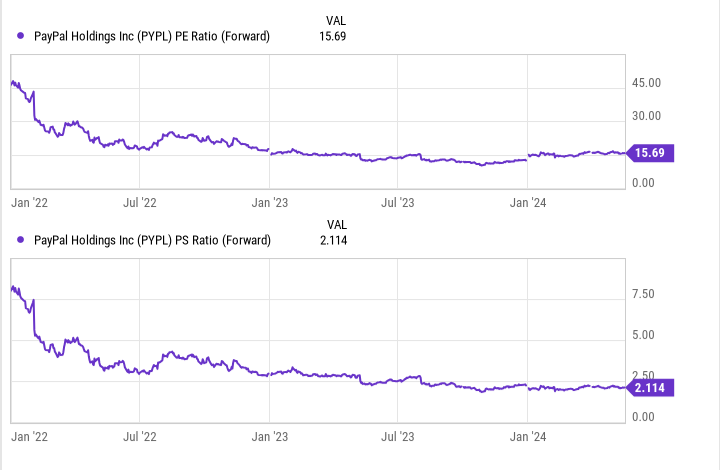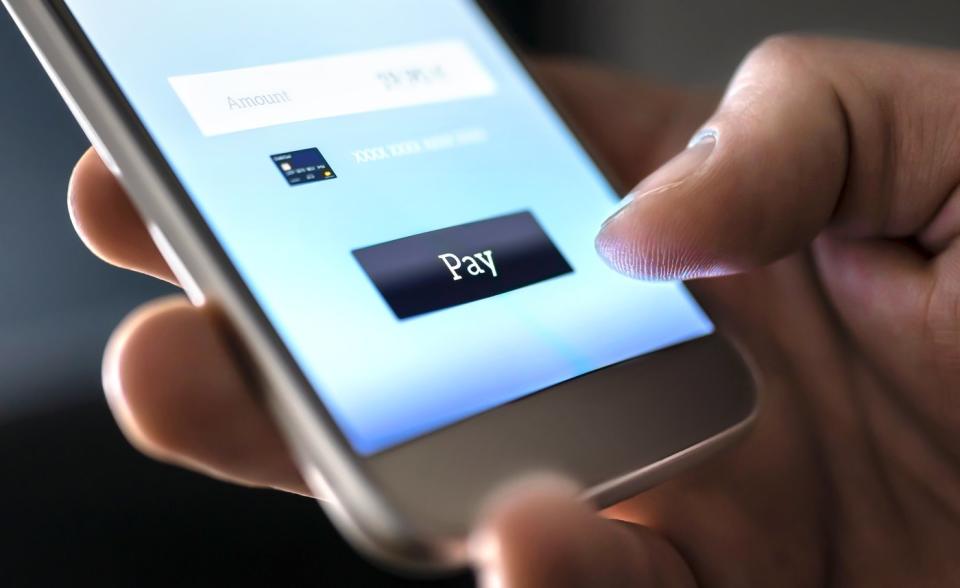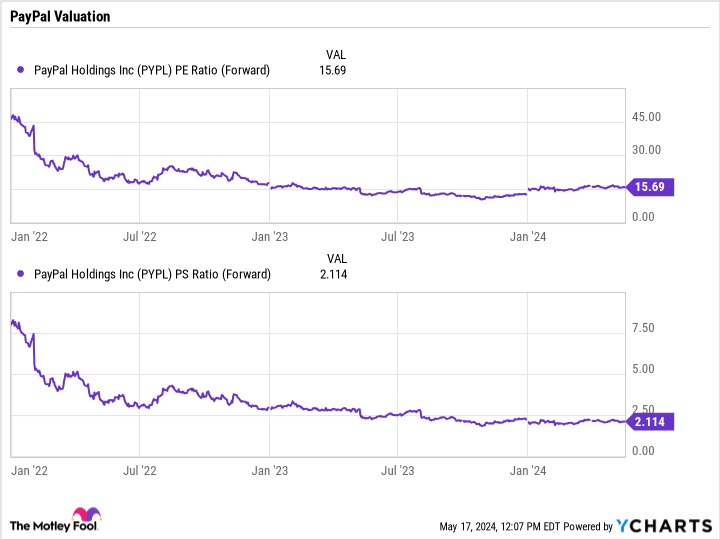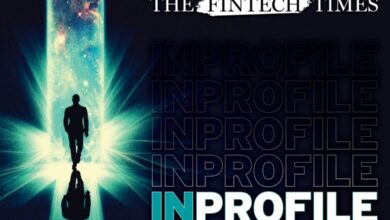Forget Nvidia. Two Billionaire Investors Just Cut Their Positions — and They Both Bought the Same Fintech Stock.

Billionaire hedge fund pioneer Paul Tudor Jones of Tudor Investment reduced his stake in chip giant Nvidia in the first quarter, undoubtedly making a tidy profit on the sale. He then funneled that money into a new investment in embattled fintech company PayPal (NASDAQ: PYPL).
Jones wasn’t the only investor making this move, as Philippe Laffont of Coatue Management made a similar move, trimming his stake in Nvidia while adding to his PayPal position. The investor, worth an estimated $6 billion, piled into PayPal shares, taking his holdings from 27,200 shares at the end of 2023 to over 8 million shares at the end of March.
Let’s look at what may have attracted these billionaires to PayPal and if investors should follow their lead and scoop up the stock.
An inexpensive stock
One of the first things that likely drew Tutor Investment and Coatue Management to PayPal’s stock is its valuation. The stock has had a rough go the past few years, down over 40% the last five years.
During that time, PayPal has still solidly grown its revenue; however, it has seen some gross margin pressure the past two years. Nonetheless, that has left the stock trading at a very attractive valuation.
The company only trades at a forward price-to-earnings (P/E) ratio of just over 15.5 times and forward price-to-sales (P/S) ratio near 2 times. That does not tell the whole story, as the company also has $8 billion in net cash and investments, of which about $1.8 billon was in equity investments. Excluding that, its forward P/E drops closer to 13.5 times.
That’s an inexpensive valuation, but a cheap stock alone is not reason enough to invest in PayPal.
A turnaround opportunity
The other big factor that likely attracted these billionaire investors to PayPal is CEO James Chriss and his plans to turn the company around and position it for the future. Chriss took the reins as chief executive of PayPal last September, coming over from Intuit where he ran the company’s Small Business and Self-Employed Group.
He quickly established himself a strong leader pushing PayPal to innovate. Since Chriss has taken over, the company has come up with a number of artificial intelligence (AI) driven advances. Perhaps the most exciting is its Fastlane product. This new checkout solution enables a merchant’s customers to check out with a single tap without having to set up an account and provide credit card information across various merchants. Online retailers lose quite a lot of potential business when consumers fail to complete their purchases.
In early tests, the PayPal merchants testing Fastlane have seen an 80% increase in conversion rates. This is a big win for retailers and makes a product like Fastlane highly desirable. The company will start rolling the product out domestically in the second half of the year.
PayPal has introduced a number of other value-added solutions as well. It announced a couple of marketing-oriented products, such as Smart Receipts and Advanced Offer Platforms, that will allow merchants to craft personalized recommendations and customize offers using data based on what customers have bought in the past, either at their own websites or across the internet. It has introduced a fraud management solution as well.
With innovation, the company is also looking to change how its solutions are priced. One of PayPal’s issues over the last few years has been a deterioration in gross margins, as companies have moved more toward its lower-margin unbranded solution BrainTree. Chriss believes the value of PayPal’s solutions far exceeds that of competitive offers, and thus he plans to start pricing based on value. On PayPal’s Q1 earnings call, Chriss said that while this process will take time, the company is already having conversations with its top customers about pricing and focusing on commercial outcomes.


Time to buy the stock?
PayPal is an inexpensive stock with a strong balance sheet that has continued to solidly grow its revenue. Gross margins have been an issue, but the company clearly has a plan in place to address this issue through innovation and pricing based on value.
That’s an attractive combination and why the stock has been starting to gain the attention of well-regarded billionaire investors. While there is always the risk that PayPal’s new products don’t gain traction or that its pricing power is limited, given its valuation, this looks a good opportunity to invest in the stock ahead of a potential turnaround. As such, now is still a great time to buy the fintech stock.
Should you invest $1,000 in PayPal right now?
Before you buy stock in PayPal, consider this:
The Motley Fool Stock Advisor analyst team just identified what they believe are the 10 best stocks for investors to buy now… and PayPal wasn’t one of them. The 10 stocks that made the cut could produce monster returns in the coming years.
Consider when Nvidia made this list on April 15, 2005… if you invested $1,000 at the time of our recommendation, you’d have $566,624!*
Stock Advisor provides investors with an easy-to-follow blueprint for success, including guidance on building a portfolio, regular updates from analysts, and two new stock picks each month. The Stock Advisor service has more than quadrupled the return of S&P 500 since 2002*.
*Stock Advisor returns as of May 13, 2024
Geoffrey Seiler has positions in PayPal. The Motley Fool has positions in and recommends Intuit, Nvidia, and PayPal. The Motley Fool recommends the following options: short June 2024 $67.50 calls on PayPal. The Motley Fool has a disclosure policy.
Forget Nvidia. Two Billionaire Investors Just Cut Their Positions — and They Both Bought the Same Fintech Stock. was originally published by The Motley Fool




